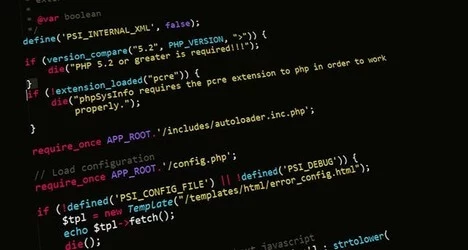12 Ways HR Can Calm Fears about ChatGPT and AI Replacing Humans
Get suggestions on how to best integrate AI into people's everyday work.
Add bookmark
Artificial intelligence (AI) is creating a swirling sense of anxiety, depression, excitement, and joy all at once. Many people want to use AI to make their work easier, to become more efficient. However, they are also fearful that the robots may replace them.
Human Resources professionals have an obligation to prepare the workforce for a future in which AI is at the center. At the moment, the job requires calming people about their concerns and devising a clear and credible game plan for AI as tool and threat.
Recently, HR Exchange Network asked respondents on Terkel.io to share how they are working with their teams to understand AI's role in the workplace. Here is what business and HR leaders had to say:
Create a Culture of Continuous Learning
"To prepare employees for the more extensive use of ChatGPT and other AI and automation tools that may replace some of their work, I focus on encouraging them to become lifelong learners.
I also intentionally use language about adaptation versus replacement, clarifying that my team's jobs will evolve rather than disappear. I want to arm them with the skills they need to stay current in this ever-changing world.
For instance, I firmly believe in providing courses about advanced analytics, machine learning algorithms, and data science so employees can understand what is happening under the hood of new technology. This helps our team develop a better understanding of how these systems operate and may help them gain more meaningful roles as the development of artificial intelligence grows."-Carly Hill, Operations Manager, Virtual Holiday Party
Empowering the HR community

Join HR Exchange Network today and interact with a vibrant network of professionals, keeping up to date with the industry by accessing our wealth of articles, videos, live conferences and more.
Join NowIntegrate AI into Work Functions
"The extensive use of ChatGPT and other AI and automation tools is inevitable in the future of work. We, as a company, have been proactively preparing our employees through continuous learning and development programs.
We have integrated AI tools into our workflows to reduce manual workload and make operations more efficient. Our employees are encouraged to learn and explore these tools, and we have offered training sessions to upskill them on how to use AI tools and automation software.
We emphasize that AI and automation do not necessarily replace their job functions, but rather enhance their productivity and efficiency. We assure our employees that we are committed to their growth and will support them in adapting to the latest technologies to build a better future for our company."-Jefferson McCall, Co-founder and HR Head, TechBullish
Use AI as a Tool
"We believe that the rise of AI and automation tools like ChatGPT represent an evolution of work rather than a replacement of human effort.
We make it clear to our employees that while AI is powerful, it doesn't replace the unique human skills they bring to the table. Creativity, critical thinking, emotional intelligence, and nuanced understanding of complex issues are irreplaceable human strengths.
We're also investing in training programs to help our employees understand and work alongside AI tools. The goal is to upskill our workforce, enabling them to use AI to augment their capabilities and improve productivity, rather than viewing it as a threat.
We see AI as a tool that can take over routine tasks, thereby freeing up our team members to focus on more complex, creative, and strategic aspects of their roles."-Bowen Khong, CEO, GameDayr
Use AI to Enhance Efficiency
"We are training our employees to use ChatGPT and other AI and automation tools and to take advantage of these new technologies to increase their productivity. We are emphasizing to employees that these tools represent an opportunity to do more meaningful work and to improve their skills.
We are also emphasizing that these tools are not a replacement for employees, but rather an enhancement that can help them be more successful in their roles."-Ranee Zhang, VP of Growth, Airgram
Be Honest: Robots Will Replace Some
"To prepare for the possible effects of AI and automation on their workforce, businesses should anticipate potential job losses because of automation and develop strategies for relocating affected workers.
To help workers adjust to shifting work requirements and schedules, businesses can consider offering alternatives like job sharing, flexible schedules, and remote work.
However, AI might also be investigated for its potential to supplement and improve the job of existing employees rather than replace them.
Data research, AI development, and automation engineering are just a few of the fields where AI is spawning new employment opportunities. These positions call for expertise in great demand, yet may be hard to fill."-Aleksandar Ginovski, Career Expert, Resume Expert, and Product Manager, Enhancv
Consider Tools to Simplify AI
"While we are preparing our team for the inevitable integration of ChatGPT's AI, we also want them to understand that companies are bringing out easier-to-use tools that make ChatGPT significantly easier to use.
Right now, many of those tools are glitchy and not all that helpful, but some are proving to be extremely powerful. So at our company, we are paying attention to the integration tools as much as the AI."-Jason Vaught, Director of Content, SmashBrand
Embrace Artificial Intelligence
"For years, I have said to my students and employees to embrace technology and keep up with it. I have seen the difference that being tech-savvy (and the efficiency that comes with it) makes in hiring and layoff selections.
ChatGPT, AI, and automation are fascinating to me, not just for what they do but for the conflicting emotions they bring—fear and excitement. I see them more as how they help us leverage the unique skills our employees bring and let these tools enable us in our work. I contend that a core competency for the future of employees' work will (it already does) require and demand a mindset for change.
Taking a less fatalistic view of technology, understanding and learning how it can help us, and using it helps diminish that anxiety, helps employees learn the technology, and start or continue their journey to embrace it."-Patty Hickok, SPHR, GPHR, SHRM-SCP, Sr. Director Employee Relations, HRIS and HR Operations, NANA Regional Corporation
Be Transparent
"If you're establishing a position for AI in your workplace, then it's important that you let your employees know about AI and how it could affect their current positions. This is especially important for older employees who might need to be more adaptable to this type of technology.
Talk to your employees about the fact that AI and the range of automation tools are here to stay—and it's only going to get bigger in the future. If your employees may find their positions at risk in the long run, tell them and be honest. This would allow employees to make important decisions, such as whether they want to stay in the career path they are in right now or rather want to move to a different career line.
At the same time, empower employees and show them how AI can be used alongside them in the workplace.-Joe Flanagan, Founder, 90s Fashion World
Stay on the Cutting Edge
"While AI and automation can replace some marketing tasks, they will not replace marketing employees altogether. Instead, AI and automation will free up marketing employees to focus on more creative and strategic tasks.
We are working on educating employees about the benefits of AI and automation. AI and automation can help marketing employees to be more productive, efficient, and effective.
Then, we move to help employees develop new skills. As AI and automation take over some marketing tasks, employees will need to develop new skills to stay relevant in the workforce. Some skills that will be in high demand include data analysis, creativity, and strategic thinking.
And finally, we are creating a culture of continuous learning. The marketing landscape is constantly changing, so creating a culture of continuous learning within your organization is important. This will help employees to stay up-to-date on the latest trends and technologies."-Brenton Thomas, CEO, Twibi
Get Smarter with AI
"In the SEO industry, we're preparing for AI tools like ChatGPT by integrating AI literacy into our training programs. Our teams are learning to use AI for deeper keyword research, smarter content optimization, and predictive SEO analytics.
We also encourage employees to develop soft skills like strategic thinking and creativity, which are vital in interpreting and leveraging AI-driven insights."-Jaya Iyer, Marketing Assistant, Teranga Digital Marketing
Embrace Humanity
"I think it's important that we don't frame AI as the enemy; rather, it is going to be helpful across all industries and help with all sorts of tasks. But AI will not replace the human experience, and we need to set the understanding with employees that at the end of the day, AI can help increase the greater good in a business setting.
Given the value ChatGPT has already brought, AI will continue to present itself as intelligence that can be used universally. Rather than creating stigmas, managers should be continuously trying to answer the question: 'What can AI do to help my current business processes, and how can my employees make AI-driven processes the best they can be?'".-Ryan Igo, Revenue Marketing Manager, Surety Systems
Think of AI as an Ally
"Our message is clear: AI is not here to replace our employees but to assist and enhance their work. We emphasize that staying ahead means embracing these advancements. We encourage employees to view AI as a powerful ally that can streamline tasks and create new opportunities for growth and innovation.
By fostering a culture of continuous learning and reskilling, we empower employees to harness AI's potential while emphasizing the irreplaceable value of their unique skills, creativity, empathy, and problem-solving abilities."-Marco Genaro Palma, Co-founder, TechNews180
Photo by Pavel Danilyuk for Pexels



















